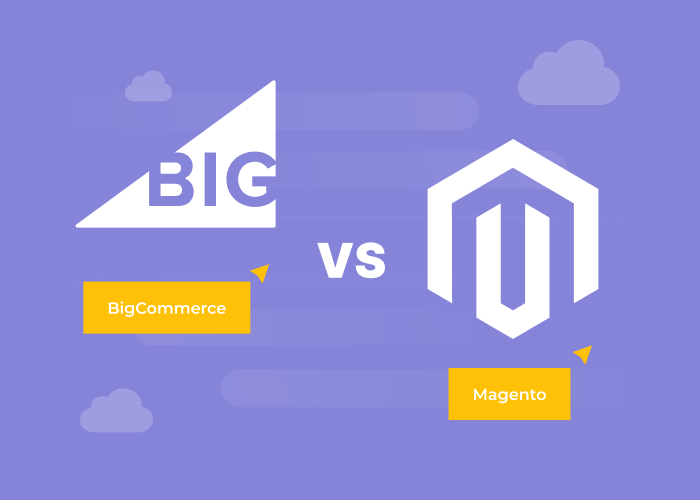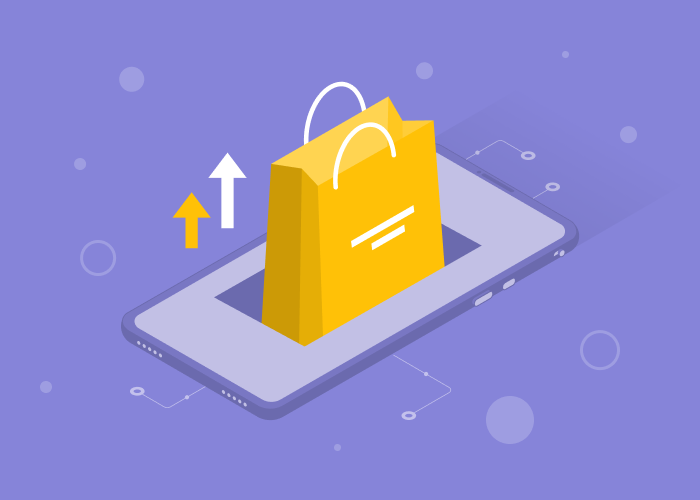Content
ERP vs CRM: What Is the Difference Between ERP and CRM?
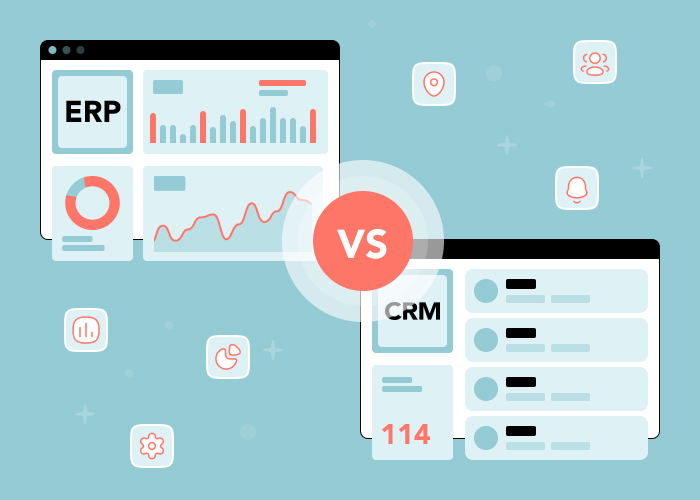
Business automation systems are becoming more and more popular, simplifying planning, synchronizing tasks between different departments, reducing human factor risks, and increasing the task completion time.
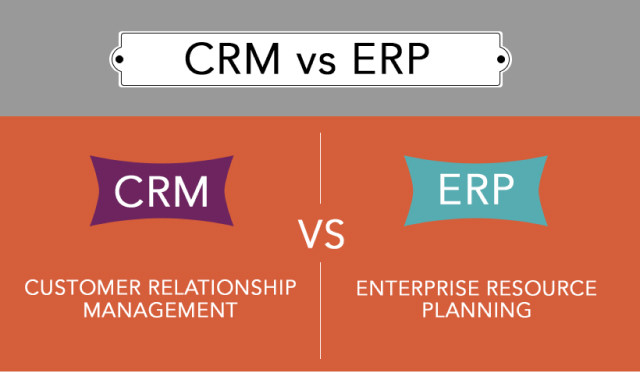
Image Source: dotmantech.com
Our experts have overviewed the nuances of ERP and CRM systems to help you to decide what kind of software to choose. So, let's start with finding out the answer to the first question: what are ERP and CRM?
Lets talk about itHave a project in mind?
What Is an ERP System?
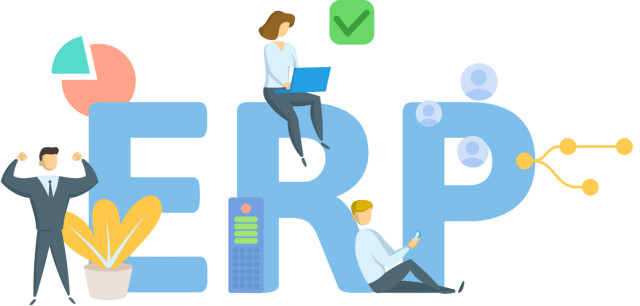
Image Source: kamala-soft.com
What is ERP (Enterprise Resource Planning)? According to the ERP meaning, this is a software solution for managing:
- finances: taxes, accounting, budget;
- staff;
- assets;
- interactions with partners, customers, colleagues.
If you imagine a standard workflow at an average enterprise, all departments keep records through special software. At the same time, business communication between them usually takes place either orally or in messenger apps. Due to human factors, some of this data may contain errors or get lost. And the managers are not able to understand what exactly is happening in each department.
And this is where ERP can help by integrating all data about business processes into one system. Typically, an ERP system consists of the following parts:
- database. Information from all departments, such as invoices, closed deals or purchasing is collected here. An employee can see all this using a single interface according to the appropriate access level;
- platform with basic functionality. It usually offers intuitive GUI for working with clients, products, and services;
- add-on modules. Big companies usually carry out a large number of processes, so it is important to migrate them to ERP. For these purposes, the system can have modules such as:
- -supply;
- -sales;
- -logistics;
- -inventory control;
- -accounting;
- -staff;
- -production.
ERPs can differ in structure, depending on their scope of application.
For example, a large factory can’t function without a production module, but for a hotel chain, it is useless. As the company grows, you can increase the number of modules. ERP can also be integrated with other systems via API.
What are the keys to successfully implementing an ERP system? First of all, note that such a system is complex and not self-configuring. Only a team of specialists can implement it, build ERP implementation phases correctly, and select the modules for a particular company’s needs. You can also configure additional options, such as warehouse management, sales funnel stages, etc. Specialists can also provide CRM integration.
Lets talk about itHave a project in mind?
All in all, ERP allows you to:
- combine processes. ERP collects all enterprise processes in one interface - from sales to project management, from invoices to communication between employees;
- combine data. ERP helps you easily exchange information between different departments and coordinate their actions;
- obtain data from all sales funnel stages. ERP usually works with BI (Business Intelligence) tools for processing huge amounts of data. BI tools help to save and organize this data and form it into understandable analytical reports if necessary;
- monitor employees’ activities. The managers track in ERP what is happening at the moment in a particular department and in the entire company. This software also makes it possible to compare expenses and income to understand how many requests were made, and how many real purchases were completed in total.
The five most popular suppliers of ERP systems are:
But if you want to get the best CRM & ERP software implementation plan, contact the Dinarys experts.
What Is a CRM System?
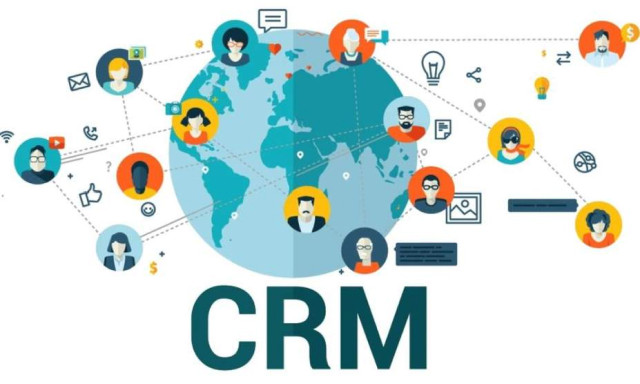
Image Source: umi.ru
Let’s answer the next question: what is CRM? Customer Relationship Management, or CRM, is the software that automates work processes and stores data about customers, tasks, transactions, and correspondence. Usually, CRM offers a GUI, reports templates, and some analytical tools. It also helps to track the transaction progress along the sales funnel and determine the manager’s effectiveness.
If a company operates without CRM, there is a high probability of human error.
CRM systems can be presented in two versions: cloud or out-of-the-box. When you are working with a cloud system, data is stored in the network and the user interacts with it through a browser. This product cannot be purchased as a one-time service; instead, the user pays a monthly fee.
As for the out-of-the-box solutions, here users pay once and install the software on the company's servers. In this case, configuration and support are performed independently, and users work directly in the program window.
Lets talk about itHave a project in mind?
CRM can be flexibly integrated with other systems via API - with a website, mail or call tracking tool. For example, in conjunction with telephony, the system can record incoming and outgoing calls. In this case, deals and tasks are created automatically.
Let's summarize the main CRM features:
- reports and sales funnel building tools. With these tools you can create unique sales funnels in all areas where the company works;
- monitoring tools. Such tools help to track the manager’s activity, the number of leads, and requests in real-time. The manager also gets information on how many calls and meetings each employee makes, how he or she communicates with clients, etc.;
- sales analytics tools. To correct mistakes, managers get an opportunity to listen to the telephone conversation records, which are automatically attached to the transaction card. This helps to understand how the employee’s communication experience affects the fact that a sale falls through;
- communication tools. Such tools help to build communication between employees effectively. Here you can set tasks, appoint responsible persons, control their activity, etc.;
- data uploading tools. CRM allows you to quickly upload colossal data volumes to other systems for further analysis;
- performance monitoring tools. These tools help to determine the effectiveness of advertising channels. From the moment you attract a potential customer to close the deal, CRM systems help calculate the conversion for each sale funnel stage.
Here are some of the most commonly used CRM systems:
In one of our blog posts, we reviewed clear CRM advantages for ecommerce.
What Is the Difference Between ERP and CRM?
So what is the difference between ERP and CRM? In general, it is impossible to say that one of these software types is better or worse - it depends on the needs and size of the business.
If you are not sure how to choose a system for your enterprise, focus on the following:
- the company size. ERP is a global ecosystem that integrates all existing company processes. Small businesses don't need such a complex platform and can use only a CRM;
- the business processes complexity. For large-scale production that purchases raw materials, processes, transports, and sells, ERP is the best choice. It’s also a good choice when the project in the company gradually moves from one department to another. But for an online store that operates on a buy-sell basis, CRM is more suitable for focusing on building relationships with clients;
- the budget for software deployment. ERP is not a cheap type of software. Its cost includes setting up software for the needs of a particular business, the work of specialists who study your niche, the system’s implementation, training employees to work with it, and much more. In this case, it makes sense to start with a CRM. This system is more accessible, it can be configured independently, and it’s also easy for employees to figure it out.
- And finally, take into account that, unlike ERP, CRM can’t be composed like a constructor. You can try to disable or enable some features, but no one can guarantee that everything will be working correctly after that.
If your business is growing and changing, sooner or later this hybrid will stop satisfying your needs, but at the same time, it will be more difficult to modify it. Therefore, it is better to use the best tips for a successful ERP implementation.
Conclusion
ERP is a multitasking tool, and CRM is exclusively a tool for automating sales. CRM can be included in the ERP as a module or provided as a separate product from the same vendor.
If you need a turnkey CRM or ERP system for your business, contact us at Dinarys. We will assemble a team of the best specialists who can quickly and easily cope with the task and build you a personalized CRM or ERP using the latest ERP implementation methodology.
Let professionals meet your challenge
Our certified specialists will find the most optimal solution for your business.

